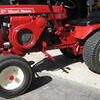Sign in to follow this
Followers
0

Cheking Coils and Condensers off tractors?????
By
Retired Wrencher, in Wheel Horse Electrical

By
Retired Wrencher, in Wheel Horse Electrical